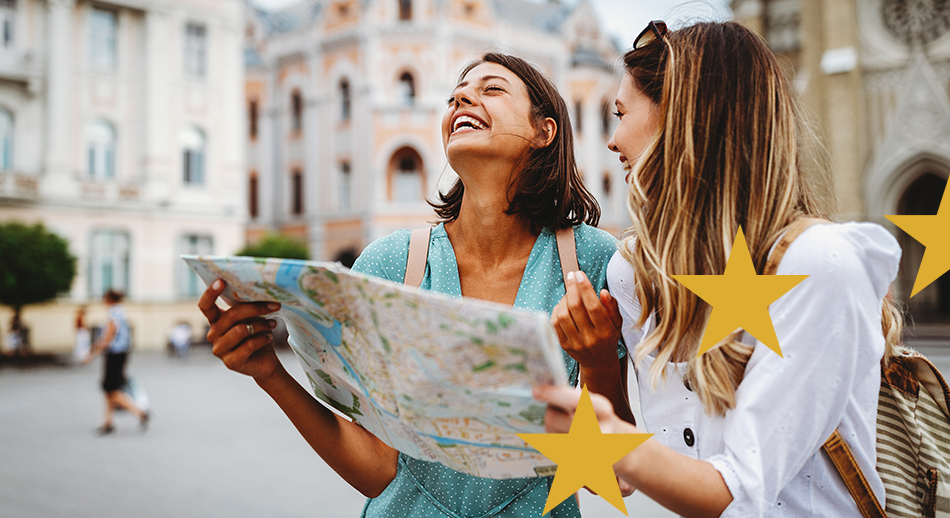We analyze funding opportunities and tools for tourism, a sector that cuts across EU funds and programs.
Tourism and other “cross-cutting” sectors
Major European programs and funds cover the main areas of EU intervention, but not always directly and specifically. In fact, they often have a broader thematic coverage than they are normally associated with. For example, Horizon Europe funds projects that can go beyond the common concept of “research.” The same applies to the LIFE (environment), Erasmus+ (education and training), ERDF and ESF+ (territorial and social development) programs; and many other funds and programs.
The “uncovering” of some thematic areas that do not have an expressly dedicated program or fund, such as tourism, is therefore only apparent. We have devoted some insights in the past to bridging this apparent gap, explaining:
- Funding opportunities for some “cross-cutting” sectors, such as tourism , precisely, or the social economy ;
- The cross-cutting nature of areas already endowed with a reference program, such as the culture and the digital , and large programs that have a very broad scope, such as Horizon Europe ;
- The new initiatives that have arisen to “cover” certain areas only touched across the board by major community programs, such as the New European Bauhaus .
Let’s talk about tourism (again)
We have already covered the topic of tourism a few years ago , offering a dedicated guide to opportunities and funding in this area. As we recalled then, tourism is a very important item for the economy of Italy and Europe, it is an outstanding vector of exchange and mutual acquaintance for the citizens of the Union and a key factor in the promotion of territories and European identity.
It is therefore not surprising that tourism is a thematic area effectively touched upon by community funds and programs: some of the major community programs, Regional Operational Programs, Rural Development Programs, and the National Recovery and Resilience Plan. .
The old guide we had mentioned obviously refers to a programming period that has now ended, but it remains valid and interesting because many of the programs it covers still exist and continue to offer funding opportunities for the tourism sector in similar ways.
A new guide for the tourism industry
A new guide dedicated to the tourism sector , which follows in the footsteps of its predecessor but with a more practical and interactive vision. Unlike its predecessor (in pdf format), it is entirely online and is organized into four main sections:
- How to use the guide. In which it is explained that the tourism sector is cross-cutting, that it is important to identify (through the guide itself) programs and funds that are of interest to those working in this sector, and that, following this, it is possible to refer to instructions and procedures specific to each individual fund and program;
- How to get support. In which the main tools made available to those who want to prepare a project or seek partners in this area are identified, including especially the Enterprise Europe Network (EEN), with its local points of contact and its working group specifically dedicated to tourism ;
- Open calls for proposals. A review of open calls dedicated to tourism under major European programs;
- Funds and programs. A review of the major funds and programs that offer opportunities in the tourism sector, each linked to a fact sheet explaining its relevance to the sector, background information, links from which to obtain more information, and projects from which to take advantage of the opportunities the program offers for the tourism sector.
An industry full of opportunities
There are many funds and programs relevant to the tourism sector:
- Major European programs: Creative Europe, Digital Europe, Erasmus+, Horizon Europe, LIFE, InvestEU e Single Market Program
- Structural and rural funds: the EAFRD e the FEAMPA, the ERDF, the ESF+ and the Fund for a Just Transition;
- The devices for post-Covid19 recovery: REACT-EU e Recovery and Resilience Device. ;
- The forms of support offered by European banks for reconstruction and development ( EBRD ) and for investment ( EIB ).
We also point out other very interesting tools and information for those working in the tourism sector, made available on the appropriate thematic page :
- The overview of the tourism policy of the EU and its link with the industrial strategy of the EU;
- The tools of the European portal dedicated to tourism (obtain financing, attract customers, manage the enterprise, know the regulations, improve theaccessibility and visibility online e international);
- A focus on some thematic aspects particularly significant (tourism maritime, cultural, in low season, accessible e sustainable) and on the forms of support For tourism enterprises (digitization, skills, network);
- Conferences and events relevant to the tourism industry.
A webinar series on e-business
Finally, we report a rich series of webinars made available to those working in the tourism sector, but also potentially of interest to those in other business sectors, focusing on the effective use of digital technologies:
- 1 – Use of digital technologies
- 2 – Self-assessment of digital capabilities
- 3 – The digital action plan
- 4 – Content plan development
- 5 – Website marketing techniques for businesses
- 6 – Use of Facebook for business
- 7 – Using Twitter with customers
- 8 – Use of other social media for business
- 9 – The digital customer experience
- 10 – Manage content on social media
- 11 – Digitization of processes
- 12 – Data analytics to improve profits and turnover
- 13 – Digital collaboration tools for SMEs.
- 14 – Remote work and the cloud
- 15 – The future of tourism in the digital world
A cross-cutting sector, but not overlooked
The tools proposed for the tourism sector are no match for those that community institutions make available in other areas more obviously related to major thematic community programs.
All that remains is to seize these opportunities and spread the information to all potential interested parties. You can do this through our channels Facebook e LinkedIn .
Write to us if you are interested in learning more about another subject area in a similar way or to tell us about your experience.




